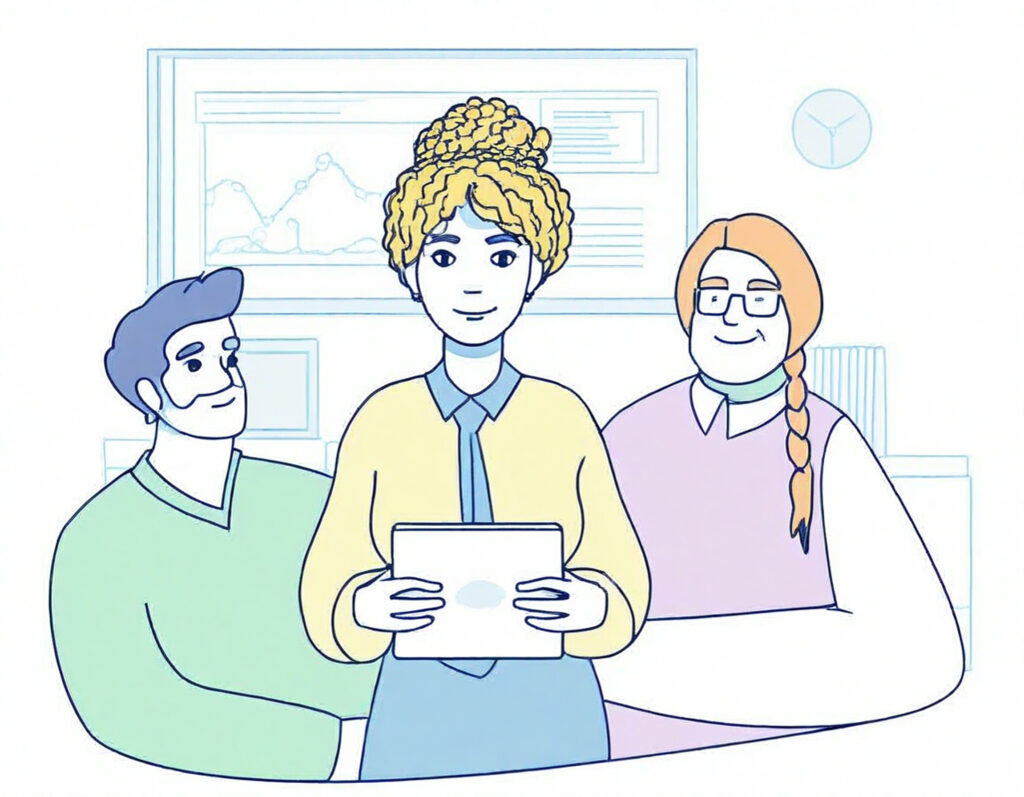 With each new generation of people comes significant changes. How much more could the staunch baby boomers differ from the peace-and-love Generation X? Even though change is one of the only constants in life, business professionals remain wary of big shifts in mindsets and operations. Consider what Generation Z avoids when looking for work, what alterations are needed as they enter the workforce, and why meeting them where they are in learning is vital.
With each new generation of people comes significant changes. How much more could the staunch baby boomers differ from the peace-and-love Generation X? Even though change is one of the only constants in life, business professionals remain wary of big shifts in mindsets and operations. Consider what Generation Z avoids when looking for work, what alterations are needed as they enter the workforce, and why meeting them where they are in learning is vital.
What Isn’t Working for These New Professionals
Perhaps the biggest thing Gen Z wants from their career is a sufficient work/life balance. According to a 2025 survey, workers aged 18-24 were the most interested in a TV-show-replicating situation where they have no memory of their working hours. Gen Z specifically is the generation that takes full lunch breaks, requires that they don’t work during those times, is less likely to look at work emails after hours, and takes more sick days.
However, they’re also living in a highly uncertain time. Many speak of working a full-time job but needing a side gig to make ends meet, having no savings because they can’t afford a house or children while spending money casually, or becoming time thieves because people who make more than them do far less work. Because it seems like employers don’t care about them, their desire to put in extra effort, take on unideal work conditions, or even dress for the office is waning.
The way they learn is different, as well. While a presentation or reading might’ve been enough for previous generations, Gen Z prefers visual and hands-on learning, alongside doing this work independently. Direct feedback is also valuable, possibly due to their digital nativity.
There are a lot of claims about Gen Z. Many bemoan that these people are too passionate about their perspectives, have no attention span or respect, use slang and their phones in the workplace, and need praise too often. However, there are several concrete reasons why these professionals are up in arms about how the workplace is run. Most of those are because they refuse to be treated as less than, believe they deserve a livable wage and benefits, and their jobs aren’t their lives.
How Gen Z Will Make Waves
Pay structures are the first big change many can expect from incoming generations. In 2025, the average student loan was just under $38,000, and it will take people nearly 20 years to pay their balances. Tack on all the other payments you make — insurance, rent, necessities, free time — and it’s no wonder many are struggling to save. Offering adequate pay, insurance and retirement benefits cuts into business owners’ salaries, but it shows employees they’re more than just a cog in the machine.
Training will need to change when they’re hired, as well. Just 12% of these team members like learning through lectures — microlearning via smaller chunks of training is much more appealing. Where possible, lessons should be visually interesting or kinesthetic so they can recall the content. Honest feedback on what they did well and where they can improve will help them independently spot growth opportunities more easily.
While work isn’t their lives, members of Gen Z appreciate when jobs feel meaningful. Learning and development scored a 4.89 out of 5 in terms of importance to these workers. Plus, nearly three-quarters of them and millennials may quit their jobs because they don’t build their skills. They require personalized mentorship, progression paths, and training that covers specialized and foundational skills to ensure they and their employers thrive.
Lastly, work/life balance is vital. This generation prioritizes their mental and physical health so they can avoid overwhelming themselves at work and after hours. Time-off policies should be flexible enough that someone can take a few days to recover from a cold or anxiety without feeling guilty or that their job is in peril. Additionally, they should not be expected to perform work duties outside of operating hours. Training sessions, email responses, ongoing learning and more should all happen on the clock to allow after-work decompression.
Why Adaptation Is Critical
According to Glassdoor, Gen Z was expected to be more prevalent than baby boomers starting in 2024. Thus, these changes aren’t just up and coming — they’re often already expected. By not catching up, enterprises risk missing out on millions of tech-driven, motivated learners and losing the interest of future applicants.
AI must be a part of Gen Z’s training and workplace activities. Less than 10% of working Gen Zers feel extremely prepared to use AI at work.
The Next Generation Is Already Changing the Workplace
The older generations will only be around for so long. New minds mean new ways of learning and operating in the workplace will be necessary. Overall, Generation Z staff aren’t too different — they just know what they want and aren’t afraid to go after it.


